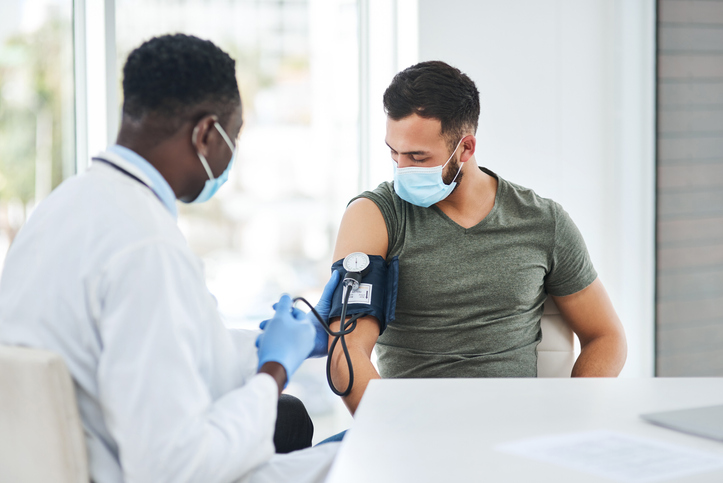What are symptoms of hypertension?
Mild hypertension doesn’t usually have symptoms. Checking your blood pressure periodically, whether at home or during a doctor’s appointment, can lead to early detection.
Hypertension can be caused by kidney disease, sleep apnea, and diabetes. If you experience any of these conditions. consider checking your blood pressure more regularly.
If you have severe hypertension, you may experience the following symptoms:
- Severe headaches
- Nosebleed
- Fatigue or confusion
- Vision problems
- Chest pain
- Difficulty breathing
- Irregular heartbeat
- Blood in the urine
- Pounding in your chest, neck, or ears
How can I prevent hypertension?
In general, maintaining a healthy lifestyle lowers your risk of having high blood pressure. This means:
Drinking alcohol in moderation and following guidelines. Men should not exceed two drinks a day, while women should not exceed one.
Staying physically active. Regular exercise keeps your arteries flexible and makes your heart stronger, which reduces your blood pressure. Make sure to warm up and cool down after each workout to decrease your risk of injury. The American Heart Association recommends the “conversational pace test” to check if you’re engaging in moderately intense physical activity:
- If you can easily carry on a full conversation and perform the activity at the same time, you probably aren’t working hard enough.
- If you can sing and maintain your level of effort, you’re probably not working hard enough.
- If you can exchange brief sentences easily while performing the activity, but not a comfortable or lengthy conversation, your intensity level is likely on target.
- If you get out of breath quickly, or if short sentences feel like a strain, you’re probably working too hard, especially if you have to stop and catch your breath.
Quitting smoking. Smoking damages your arteries and puts you at increased risk of heart disease. The nicotine contained in cigarettes raises your blood pressure.
Maintaining a healthy weight. The body mass index (BMI) can be a useful starting point, although it is certainly not a perfect measure (see our article on BMI for more details). Obesity increases your blood pressure, putting you at higher risk of hypertension.
How can I learn more about preventing hypertension?
We suggest checking out the following resources to learn more about preventing hypertension:
- Exercise: A drug-free approach to lowering high blood pressure — Mayo Clinic
- Getting Active to Control High Blood Pressure — American Heart Association
- Quit Smoking for Your Heart’s Sake — WebMD
- Heart Disease and High Blood Pressure — WebMD
- Hypertension: What You Need to Know as You Age — John Hopkins Medicine


